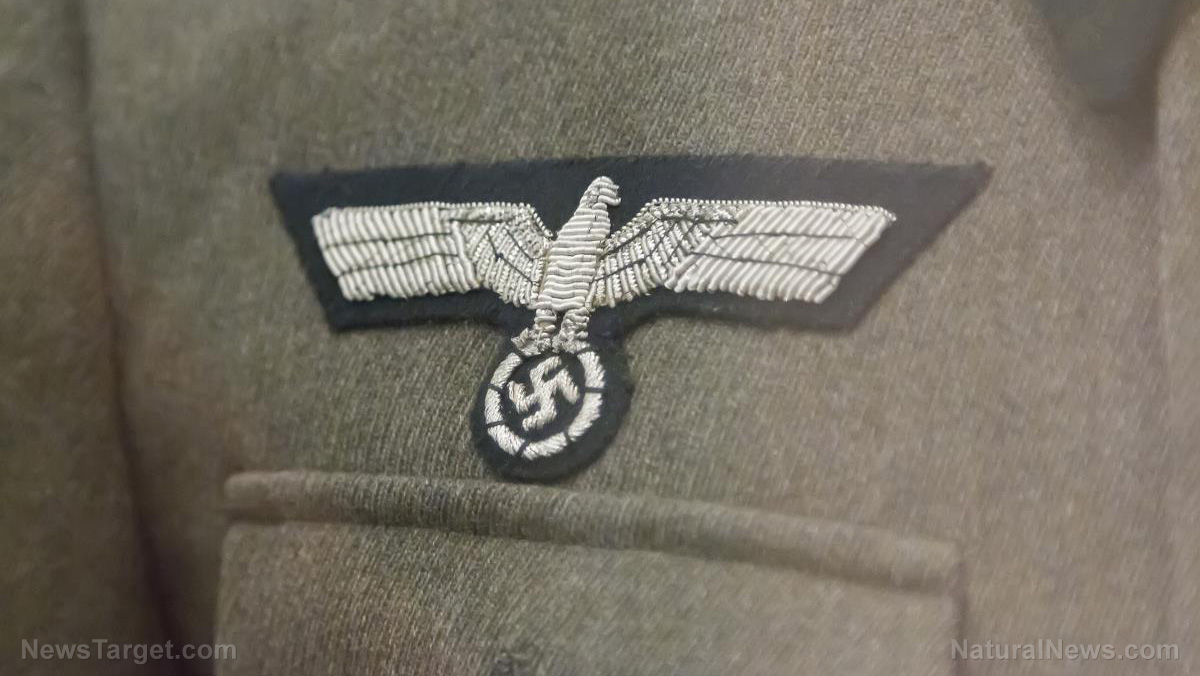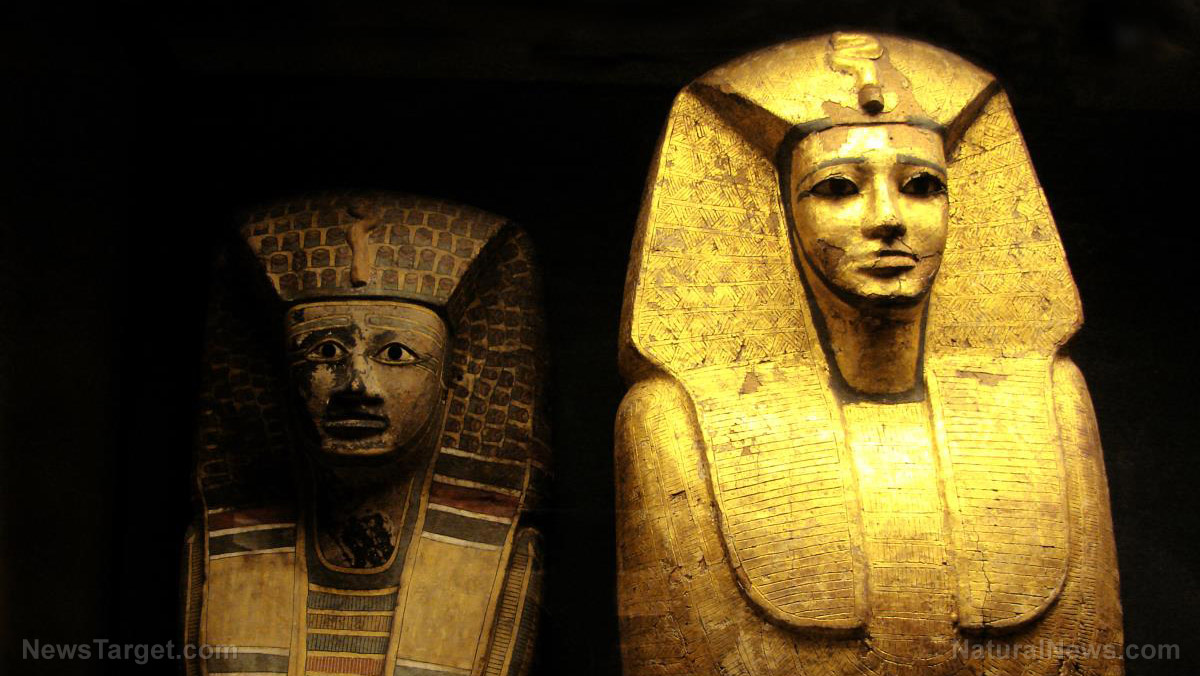Credit Suisse’s Nazi ties run deeper than previously known, Senate investigation reveals
01/07/2025 / By Willow Tohi

- A U.S. Senate Budget Committee investigation uncovered extensive evidence of Credit Suisse’s historical ties to Nazi Germany, revealing the bank deliberately withheld critical information from prior inquiries, including accounts linked to the SS and Nazi intermediaries involved in atrocities and economic exploitation.
- Credit Suisse obstructed internal and external investigations, including the Bergier and Volcker Commissions, by selectively sharing information and omitting key details. The bank even pressured and terminated independent ombudsperson Neil Barofsky before reinstating him under congressional subpoena.
- The probe identified numerous previously unknown or partially known Nazi-linked accounts, including those tied to war crimes, forced labor, and the looting of Jewish assets. Documents marked with “Amerikanische schwarze Liste” (American Black List) revealed a high relevance rate of Nazi connections.
- Credit Suisse facilitated “ratlines,” clandestine networks used by Nazis to flee Europe after the war, with over three dozen individuals connected to these routes holding accounts at the bank.
- The investigation has prompted UBS, which acquired Credit Suisse in 2023, to pledge full cooperation. Senators Grassley and Whitehouse emphasized the importance of uncovering the truth and ensuring justice for victims, with Barofsky’s final report expected in 2026.
A bombshell investigation led by the U.S. Senate Budget Committee has uncovered extensive new evidence of Credit Suisse’s historical ties to Nazi Germany, revealing that the Swiss bank deliberately withheld critical information from prior inquiries. The findings, detailed in an interim update from independent ombudsperson Neil Barofsky, expose a pattern of obstruction and concealment by Credit Suisse, raising serious questions about the bank’s commitment to transparency and accountability.
The investigation, spearheaded by Senators Chuck Grassley (R-Iowa) and Sheldon Whitehouse (D-R.I.), has identified scores of previously unknown or only partially known Nazi-linked accounts held at Credit Suisse. These accounts include those tied to the SS, the elite Nazi paramilitary unit responsible for countless atrocities during World War II, as well as intermediaries who facilitated the Third Reich’s economic policies, including the seizure of Jewish-owned businesses and the exploitation of forced labor from concentration camps.
Barofsky, a former U.S. prosecutor and partner at the law firm Jenner & Block, was appointed by Credit Suisse in 2021 to oversee an internal investigation into the bank’s Nazi-era accounts. However, after pressuring Barofsky to limit his inquiry, the bank abruptly terminated him in December 2022. Following the Senate Budget Committee’s intervention—including the issuance of a subpoena, the first by the Committee since 1991 – Credit Suisse reinstated Barofsky in 2023, allowing the investigation to proceed.
The probe has since uncovered a trove of documents, including client files marked with the stamp “Amerikanische schwarze Liste” (American Black List), a designation used by Allied Forces to identify entities supporting the Axis powers. These files, housed in Credit Suisse’s Inf Department, reveal a “high relevance rate” of Nazi connections, with thousands of records still under review.
Barofsky’s interim update also highlights Credit Suisse’s failure to fully cooperate with prior investigations, such as the Bergier and Volcker Commissions, which were tasked with examining Swiss banks’ roles during and after World War II. According to Barofsky, Credit Suisse “did not always share information that it knew” with these commissions, opting instead to provide only what was specifically requested. In one instance, the bank omitted details about a Nazi intermediary from its report to the Volcker Commission, with internal notes describing the report as “rather sanitized” and advising it was “[b]est to leave [the report] as is.”
Shocking discoveries
The investigation has also uncovered Credit Suisse’s involvement with “ratlines,” the clandestine networks used by Nazis to flee Europe after the war. Barofsky’s team has identified more than three dozen individuals connected to these escape routes, many of whom held accounts at the bank. Additionally, the probe has revealed accounts tied to Nazi intermediaries who facilitated the looting of Jewish assets, gold smuggling, and war purchases.
Among the most disturbing findings is the discovery of accounts held by individuals directly involved in Nazi atrocities. These include a German manufacturer who relied on concentration camp slave labor and a Nazi official who oversaw the “aryanization” of Jewish assets. Credit Suisse itself also held accounts at the bank, further implicating its complicity in the Third Reich’s economic policies.
The Senate Budget Committee’s investigation has already prompted UBS, which acquired Credit Suisse in 2023, to pledge its full cooperation. UBS has stated it is “committed to contributing to a fulsome accounting of Nazi-linked legacy accounts held at predecessor banks of Credit Suisse.”
Senator Grassley emphasized the importance of the investigation, stating, “Our inquiry has dug up more than just stones—we’ve found boulders. Credit Suisse hid additional evidence of Nazi ties for years, and even tried to conceal information from our congressional investigation.” Senator Whitehouse echoed this sentiment, reaffirming the Committee’s commitment to “truth and justice for all who were victimized by Credit Suisse’s historical servicing of Nazi accounts.”
Barofsky’s final report, expected in 2026, will provide a comprehensive account of Credit Suisse’s Nazi-era activities. In the meantime, the investigation serves as a stark reminder of the enduring need to confront historical injustices and hold institutions accountable for their actions.
As the world awaits the full findings, one thing is clear: Credit Suisse’s ties to the Third Reich run far deeper than previously thought, and the bank’s efforts to conceal its past have only deepened the stain on its legacy.
Sources include:
Submit a correction >>
Tagged Under:
Chuck Grassley, conspiracy, corruption, Credit Suisse, deception, economic riot, finance riot, Hidden History, Nazi, Neil Barofsky, real history, real investigations, Sheldon Whitehouse, truth, World War II
This article may contain statements that reflect the opinion of the author
RECENT NEWS & ARTICLES
COPYRIGHT © 2018 REALHISTORY.NEWS
All content posted on this site is protected under Free Speech. RealHistory.news is not responsible for content written by contributing authors. The information on this site is provided for educational and entertainment purposes only. It is not intended as a substitute for professional advice of any kind. RealHistory.news assumes no responsibility for the use or misuse of this material. All trademarks, registered trademarks and service marks mentioned on this site are the property of their respective owners.



















